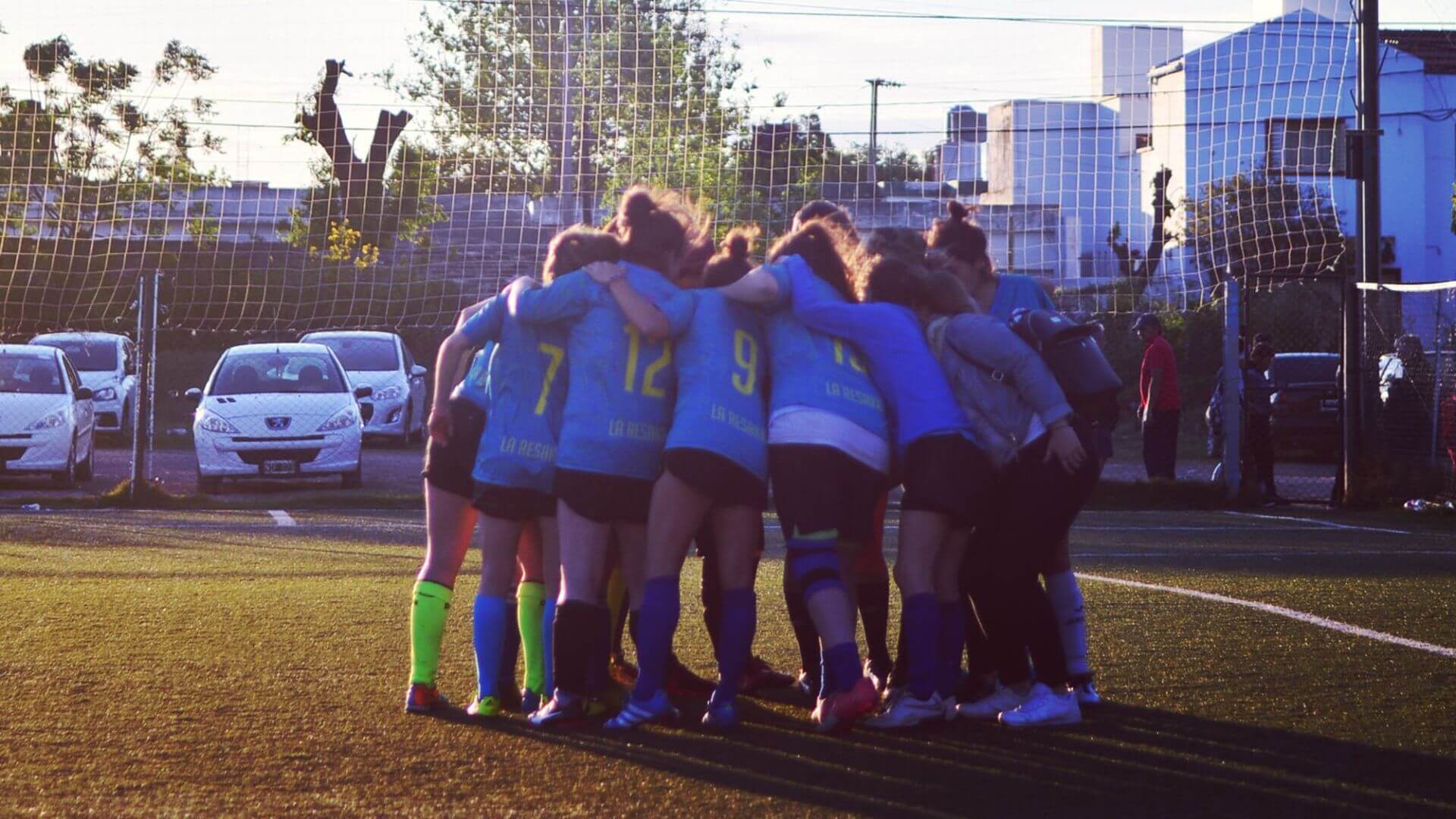Healthy vs. Unhealthy Perfectionism
Many of us in this day and age self-identify as perfectionists. Our perfectionistic tendencies show up at school, at work, and home. But have you thought about how perfectionism might be holding you back on the soccer field?
Here we’ll cover some of the ways your perfectionism might negatively affect your game and offer some reframes to move towards a more healthy mindset. This mindset helps you grow and expand and isn’t detrimental or limiting to your game.
First off, let’s define perfectionism as it relates to soccer:
Unhealthy perfectionism is when a soccer player fixates on flawlessness and sets impossibly high standards for themselves. Unhealthy perfectionism is being overcritical of your performance and not accepting anything from yourself that is less than perfect.
Since perfection is not possible, perfectionists get trapped in never-ending feelings of inadequacy and failure. This impacts confidence greatly, resulting in players not being able to play their best soccer or maximize their potential on the field.
Unhealthy perfectionism directly affects soccer players’ mental health and emotional well-being and is an important topic to address.
Healthy perfectionism is having a healthy striving mentality. Soccer players with a healthy striving mentality can use their perfectionistic traits to their advantage without letting them completely take over their game and become self-defeating.
For example, many perfectionists typically are very disciplined, have a strong work ethic, and are good at goal setting. All of which are fantastic for something such as fine-tuning technical skills when self-regulation, commitment, and hard work.
When the intention is set right, players can actually use their perfectionistic traits to work toward growth. When players combine this with being self-compassionate, they can harness their positive perfectionistic traits and use them to achieve greatness.
Perfectionism & Goal Setting
When it comes to goal setting, perfectionists can be known to set impossibly high expectations. Their definition of success is ‘flawlessness,’ and they try to reach their goals by demanding perfection in everything they do. Mistakes and failures are met with negative self-talk and other self-defeating mentalities.
Try this: You want to set high yet realistic goals for yourself when it comes to goal setting. Then, work toward your goals by fine-tuning your skills and striving for excellence via hard work and patience.
Perfectionism & Player Development
Players who identify as perfectionists can have a hard time receiving feedback as fear of failure and fear of not belonging are real concerns. They can experience a lot of self-doubts and lack confidence when facing challenges and new situations. They are often overcritical of their performance and rarely feel successful, satisfied, or proud of their play.
Try this: Try to have a growth-minded view of things. To improve, you need to be a player who seeks out and invites feedback, not hides from it. Make failure your fuel, use it to create motivation and drive to work harder.
When facing challenging situations, know that putting yourself into these spaces is the only way to improve. If you are always doing things you are comfortable with, are you adding anything to your game?
Perfectionism & Teammates
Perfectionists can spend a lot of energy continually worrying about not disappointing their teammates, coaches, parents, etc. They often compare themselves to others and get discouraged or resentful when teammates outperform them.
Try this: Work on being a supportive teammate both on and off the field. Because when the team supports each other, when the collective is strong, the team plays better. Try adopting a mindset of healthy competition where you appreciate skilled teammates that work hard because it pushes you to work even harder.
Perfectionism & Gameplay
During gameplay, perfectionism can show up all over the place. For example, it can show up as hesitating and being indecisive on the field or putting pressure on yourself to perform well (making calm and composed play near impossible).
It can show up as struggling to mentally get past errors or missed opportunities and playing over-cautiously to not make mistakes in the first place.
It can even show up after the game as being unable to take compliments and feel happy for a job well done, as perfectionists tend to fixate on only what went wrong and not what went right.
Try this: When it comes to games, trust your training to help you make decisions. Then, when mistakes happen, be resilient. Rebound, recover, and get back at it immediately.
Playing with a mindset of not making mistakes is a quick way to kill passion, intensity, and creativity, so try to avoid it. Be aware of the content of your self-talk; speak to yourself in a constructive way no matter the circumstance.
Overcoming Perfectionism on the Soccer Field
The first step in overcoming perfectionism in soccer is to be self-aware and come to terms with the fact that, yes, this is holding you back. Spend some time reflecting and being completely honest with yourself because you can’t work to overcome something that you haven’t fully accepted as reality.
The second step is redefining success on the soccer field as something other than perfection. Work towards being nicer to yourself when things don’t go your way or when mistakes or missed opportunities happen.
This doesn’t mean go easy on yourself; it just means don’t self-defeat–don’t be your own worst enemy on the soccer field. Self-talk is hugely powerful here, so creating a habit of positive and instructional self-talk is of utmost importance.
Work to replace your limiting beliefs with new ones. Most of the things we think and believe about ourselves are self-imposed restrictions. Learn to let go of comparison and start to appreciate individuality and what you can uniquely bring to your team.
Lastly, acknowledge that your journey will include challenges, setbacks, and other difficult moments throughout your soccer career. No soccerista has ever reached the top of their game without overcoming obstacles, and truthfully, the ability to overcome obstacles is actually what will make you great.
Featured image via Adobe Stock Images
_
GIRLS SOCCER NETWORK: YOUR SOURCE FOR GIRLS SOCCER NEWS











